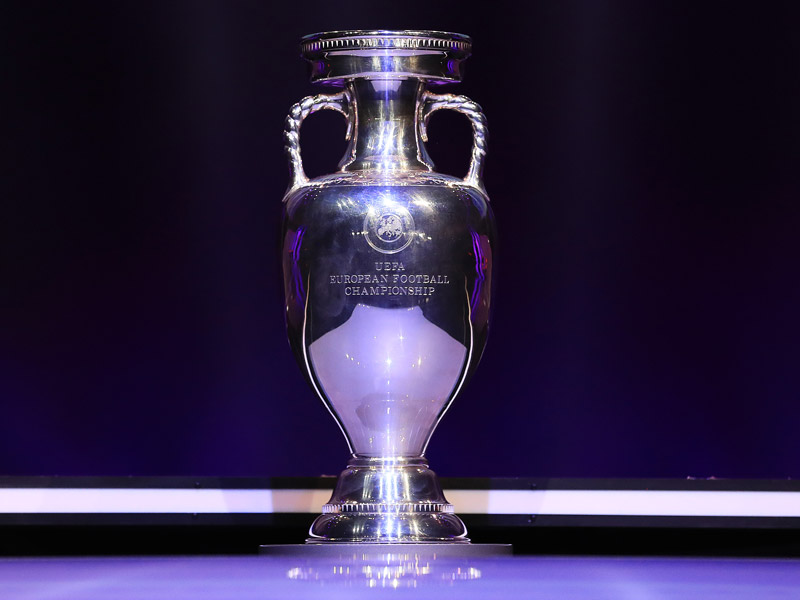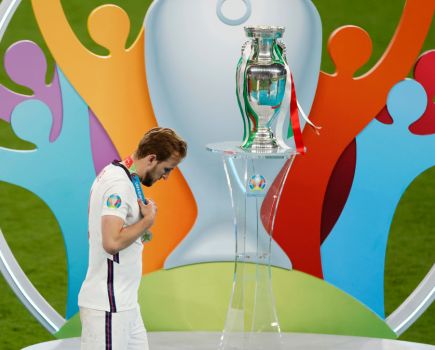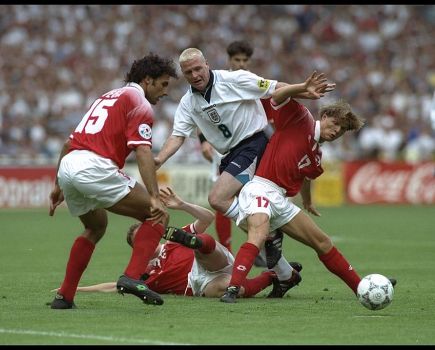Past European Championship Hosts
Lots of different European countries have hosted the European Championships over the years and that is only set to increase in Euro 2020 as the tournament is taking place in 12 cities across the continent.
Here we have taken a look through the past to give you an idea on who hosted each tournament.
Past European Championship Hosts
2024 – Germany

Phillip Lahm and Celia Sasic pose after Germany gets awarded the 2024 Euros (Getty Images)
Germany beat Turkey to win the hosting of the 2024 Euros.
2020 – Pan-European
To celebrate 60 years of the European Championship, the tournament in 2020 will be held across 12 different cities in 12 countries. These are Amsterdam (Netherlands), Baku (Azerbaijan), Bilbao (Spain), Bucharest (Romania), Budapest (Hungary), Copenhagen (Denmark), Dublin (Republic of Ireland), Glasgow (Scotland), London (England), Munich (Germany), Rome (Italy), Saint Petersburg (Russia).
2016 – France

France hosted the tournament for a third time in 2016. Italy and Turkey also put in single bids while Norway and Sweden put in a joint bid which was later withdrawn.
2012 – Poland/Ukraine
In 2012 the tournament was again co-hosted this time between Poland and Ukraine. Croatia–Hungary, Greece, Italy, and Turkey had also put in bids but failed to win.
2008 – Austria/Switzerland
After years of trying the Austrians finally had a successful bid to host the tournament in 2008. It was a joint bid with Switzerland who were also hosting the event for the first time.
2004 – Portugal

Again Austria bid this time alongside Hungary but they were beaten this time by Portugal. The winning bid was selected in October 1999.
2000 – Belgium/Netherlands
For the first time the tournament was co-hosted by two countries in 2000 with Belgium and the Netherlands sharing it. They beat bids from Spain and Austria to host the event. Eight different stadiums were used for the matches in what many call the finest international tournament ever.
1996 – England
The 10th European Championships were held in England and 16 teams took part this time. The English beat out bids from Austria, Greece, the Netherlands and Portugal.
1992 – Sweden
The tournament headed to Scandinavia for the first time in 1992. Sweden used four stadiums each of which was situated towards the south of the country.
1988 – West Germany

The Germans hosted in 1988 (Getty Images)
The Germans hosted for the first time in 1988 in eight different stadiums, each of which had a capacity of more than 60,000.
1984 – France
France hosted for a second time in 1984 and seven different stadiums were used in seven different French cities.
1980 – Italy
Italy was once again tasked with hosting only 12 years after doing so the first time. This was the first edition to feature eight teams and as a result two new stadiums were used to host games. The Stadio Olimpico and Stadio San Paolo were once again on display and the two new stadiums were the San Siro and Stadio Communal in Turin.
[collection name=”small” accordion=”mobile” excerpt=8]
1976 – Yugoslavia
The huge Eastern European country hosted the event in 1976 at the Red Star Stadium in Belgrade, and the Stadion Maksimir in Zagreb.
1972 – Belgium
Belgium hosted in 1972 with two of the stadiums situated in Brussels, one in Antwerp and another in Liege.
1968 – Italy
In 1968 the tournament became known as the European Championship and Italy hosted for the first time. Three stadiums were used, the Stadio Olimpico (Rome), Stadio San Paolo (Naples) and the Stadio Communale (Florence).
1964 – Spain
Spain hosted the 1964 tournament with all the matches shared between the Santiago Bernabeu and Camp Nou in Madrid and Barcelona respectively.
1960 – France
Originally called the European Nations Cup, the first tournament was held in France and the games were shared between Paris and Marseille.
Follow our Euro 2020 homepage which we update regularly with news and features.
Also make sure you know about the Fixtures, Groups, Venues and TV Coverage.






